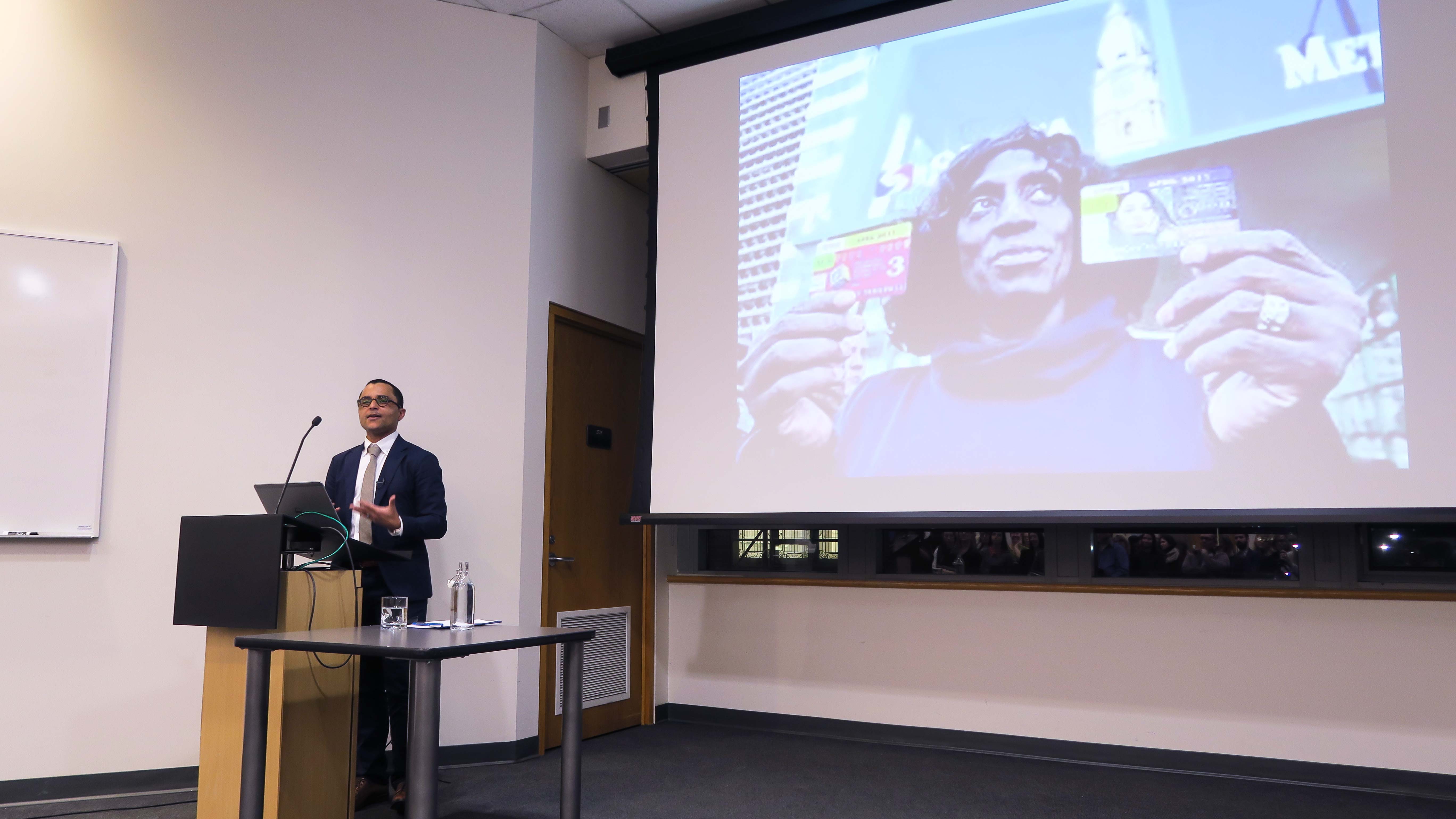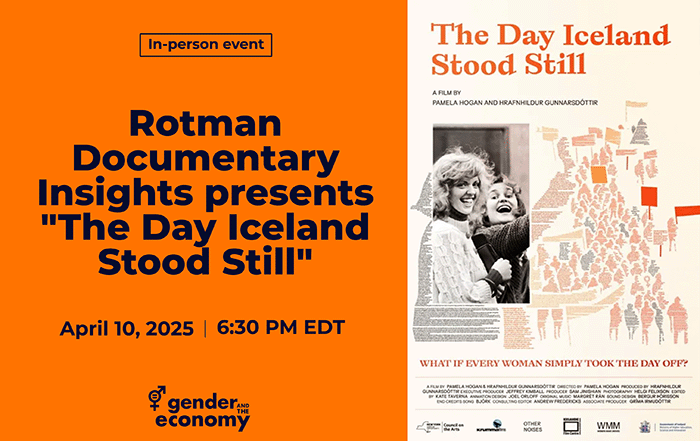“The book’s question is very simple, but also very profound. It asks a lot more of us than it might seem at first glance,” began Associate Professor Heath Fogg Davis at the talk about his book, “Beyond Trans: Does Gender Matter?” on December 06.
Davis, in the event co-hosted by GATE and the Mark S. Bonham Centre for Sexual Diversity Studies, questioned requirements for gender classification in many situations, such as for bus passes or buying plane tickets. We have a default social custom to request that individuals identify their gender in all sorts of contexts. Those policies have a tremendous impact on our day-to-day lives—whether it’s obtaining a driver’s license or applying for a mortgage—and can disadvantage individuals who may not conform to the gender binary or traditional perceptions of gender. Davis is particularly concerned with how we delegate authority–in regards to the management of gender–to individuals employing these policies on a daily basis (e.g. transit workers, civil servants, mortgage lenders, etc). However, Davis is not advocating for the complete eradication of gender in our society. Instead, he wants us to be wary of how, when, and why gender and sex categories are used. He explained:
“Because gender is so important to a lot of us personally, we should be very careful about when and how we cede authority over those self-statements to other people.”
Deeper into the discussion, Davis questioned strategies such as “assimilation” (e.g. facilitating changing the gender classification on legal documents) and “accommodation” (e.g. creating “all gender” restrooms) which often maintain the gender binary. Ultimately, he believes that we should be working toward implementing gender-inclusive policy design (based on the principles of universal design) which starts with the question: Who is the least well off due to this issue or policy? By asking that question we can create better policies that are designed around the needs of that group of people, and eventually, make things better for everyone.
He reiterated this point at the end of the presentation stating, “Gender-inclusive policy design helps trans people, but it also helps a lot of non-trans people, and that is the next step that I’d love to see us move in.”







